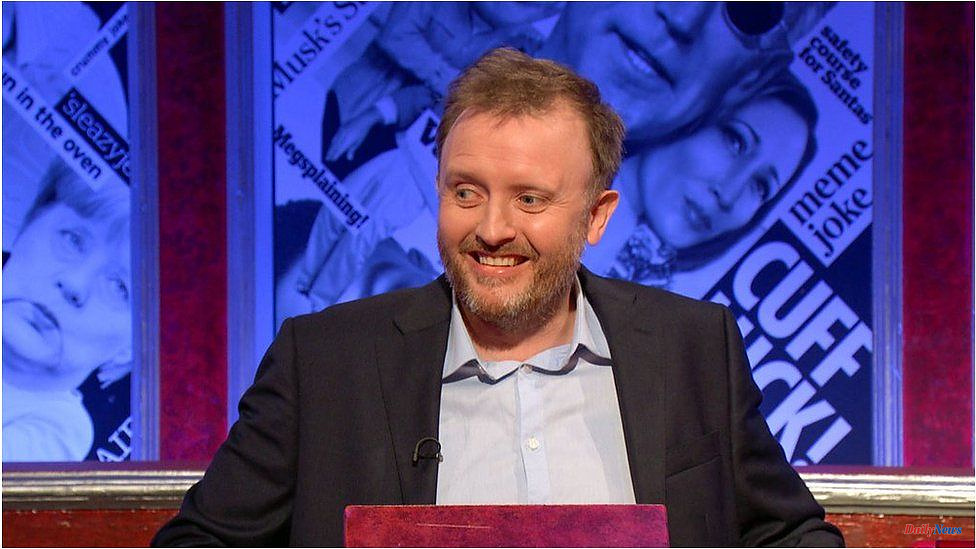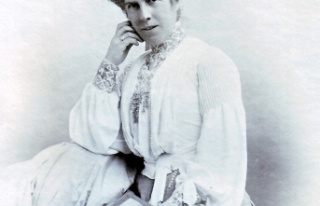If Chris McCausland, a blind comedian, appears on Have I Got News For You, complaints are often followed.
According to the Liverpudlian, viewers often get frustrated and turn to Twitter to express their frustrations.
He said that they tweet "It's shocking that the BBC are still using photos and visual jokes".
He tells BBC Access All that "but that's the show, and that's what I want to do that," he says.
This is a refreshing view on accessibility and inclusivity that many people get in trouble over. Many of the panel shows, such as Would I Lie to You, that he appears on, rely on visual cues like pictures, items, or missing words rounds.
He said that it is not a criticism that they continue to play these games in his presence. It's part of the format which he doesn’t want to change because he is blind.
"I'm on the News Quiz on Radio Four. But I don't want Have I Got News For You being morphed into a News Quiz because I'm there." Both are great shows.
These decisions are produced using "far fewer" meetings than one might imagine. Adjustments are made quickly and without fuss.
He says that the production teams "meet me halfway." "They switch one of the rounds into an audio round, or something similar."
He also let his teammates know that he is open to suggestions: "If you have something you would like to share with me, please describe it." If they'd like to include it in the edit they can. They can also delete it if they don’t want to.
This was something he mentioned when he recorded the 2022 QI Christmas special in February.
The recording included a visual magic trick that was not described.
After the match, QI captain Alan Davies apologized to McCausland for not being accommodated.
McCausland said to McCausland, "It's cool buddy." McCausland said, "The world's visual, it is television. Not everything has to be for you."
McCausland finds it easier to be comfortable with his impairment and McCausland's sight loss in his 20s due to retinitis pigmentosa, but this was a difficult time for him. McCausland says that he still hates a white stick, referring to his struggle to learn how to use a cane.
You start to feel self-conscious when you think everyone is looking at you, as if you're a slurring fool. You want to be normal.
He would ignore the fact that he was blind when he began his comedy in 2003 as a hobby, away from his "soul-destroying" call center job.
"I would make a joke at beginning, and I wouldn't tell it again." They should forget I was blind."
He said that he was trying "challenge preconceptions about blind people" and the low expectations they might place on them. He says, "That was my awkward way of doing it by not speaking about it."
He is now approaching 20 years of comedy and is beginning to see the value in his unique insights.
He is currently taking a summer vacation from Speaky Blinder's 100-date tour. In which he speaks more about his blindness than ever, While he still challenges preconceptions, his approach has changed.
"I believe in the power of mainstream success and this is why I am doing this tour at big venues with people who are paying money to watch it. It's beautiful to see."
A few weeks back, he really "achieved in the mainstream", when he and Lee Mack created a comedy sketch about the dangers of a visual world to be used for the Bafta TV Awards. It was viral and received 6m views from the BBC Facebook page alone.
They are close friends and had spent Wednesday night at Mack's house, drinking "too many coffees" and sketching. They began to play with the idea of who would say what, and McCausland's inability to see an autocue. The absurdity of the situation made them both laugh.
"We thought, 'This is it'. We wanted to take a riskier approach.
They found it funny on Wednesday, but when they got backstage to the awards ceremony, they began to wonder if they had made a terrible error and were about to offend everyone.
We'd never done it before and it was live on TV in front everyone who could offer us a job in TV. It was a little risky.
McCausland tells the celebrity-filled audience that this is the first time a blind person has presented to the Baftas. Then follows a skit with crossed-wires. They repeat each other's lines and McCausland says: "So let’s take a glance, apparently or a listen. I suppose." at the nominations.
It was the highlight of the night, and their gamble paid off.
It was also very popular among the blind community, who loved it because it was close to the truth.
Chris comments, "If you take out the jokes from it, it will just be the normal things people would say," Chris said, referring to the often awkward ways that sighted people might try being helpful.
However, life as a comedian has been a lot more than that. It included three appearances on BBC's Live At The Apollo and the Royal Variety Performance.
McCausland received a degree as a software engineer in 2000. However, it was difficult to find a job in an industry that wasn't yet familiar with accessibility.
He applied for "mad stuff", including MI5, and was one of the 30 final applicants. It's astonishing."
Although he believes that discrimination ultimately kept him from becoming a spook, he says he was happy about one instance of discrimination and "wholeheartedly believe in it".
He was required to quickly analyze information in order to identify potential threats during an assessment day. It's something he would expect to be able to do in most other professions.
"But Waterloo can't blow up and then have them go, 'well this guy needed additional time'. You can only do certain things.
He was also questioned about his ability to blend in with others if he was going on a mission to exchange information with informants.
"What could be more undercover than a blind man meeting his friend in the pub for one? McCausland asked.
The assessor responded, "Good point", and wrote down something.
"I have always loved to imagine, to this day," he wrote, "employ more people blind".
Listen to the podcast, and get support and information on the Access All page.












